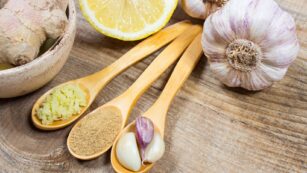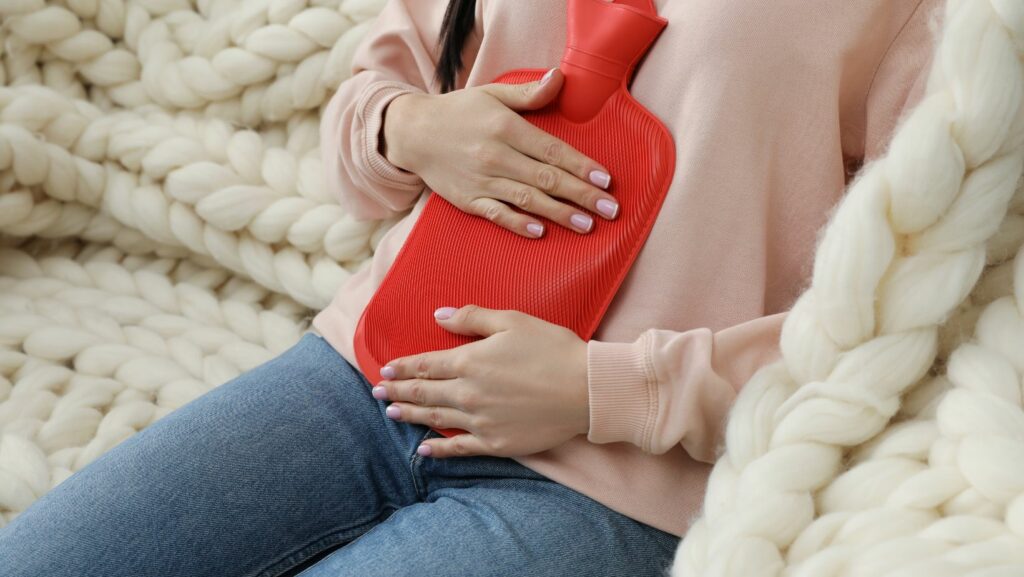Menstrual pain is a common struggle for many women, often disrupting daily life and causing significant discomfort. While it’s a natural part of the menstrual cycle, finding effective ways to manage and alleviate this pain can make a world of difference. From simple lifestyle changes to natural remedies and over-the-counter solutions, there are numerous strategies to ease the discomfort. This article will explore practical tips to help reduce menstrual pain, allowing women to feel more comfortable and in control during their cycle. Foods high in magnesium (e.g., spinach, almonds) and omega-3 fatty acids (e.g., salmon, flaxseeds) have anti-inflammatory properties that may help reduce cramps. Certain dietary supplements can help alleviate menstrual pain. Calcium, magnesium, and vitamin B1 (thiamine) are known to reduce cramps. Consult with a healthcare provider before starting any new supplements.
Tips to Relieve Menstrual Pain
 Drinking water can help reduce bloating, a common symptom during menstruation. Aim for at least eight glasses of water a day to stay hydrated and maintain optimal body function. Herbal teas, like chamomile and ginger, can also alleviate cramps and promote relaxation. Using heat to soothe menstrual cramps is an effective method. Apply a heating pad or hot water bottle to the lower abdomen for 15-20 minutes. Warm baths can also provide relief by relaxing the muscles. Engaging in physical activity helps release endorphins, which act as natural painkillers. Light exercises like walking, stretching, or yoga can improve blood flow and reduce the severity of menstrual cramps. Nonsteroidal anti-inflammatory drugs (NSAIDs) can provide quick relief from menstrual pain. Ibuprofen, for instance, helps reduce inflammation and pain. Always follow the dosage instructions on the label to avoid adverse effects. Stress can exacerbate menstrual pain, so practicing relaxation techniques is beneficial. Methods like deep breathing, meditation, or progressive muscle relaxation can help manage stress and alleviate pain. Maintaining a balanced diet rich in fruits, vegetables, whole grains, and lean proteins can influence menstrual pain levels.
Drinking water can help reduce bloating, a common symptom during menstruation. Aim for at least eight glasses of water a day to stay hydrated and maintain optimal body function. Herbal teas, like chamomile and ginger, can also alleviate cramps and promote relaxation. Using heat to soothe menstrual cramps is an effective method. Apply a heating pad or hot water bottle to the lower abdomen for 15-20 minutes. Warm baths can also provide relief by relaxing the muscles. Engaging in physical activity helps release endorphins, which act as natural painkillers. Light exercises like walking, stretching, or yoga can improve blood flow and reduce the severity of menstrual cramps. Nonsteroidal anti-inflammatory drugs (NSAIDs) can provide quick relief from menstrual pain. Ibuprofen, for instance, helps reduce inflammation and pain. Always follow the dosage instructions on the label to avoid adverse effects. Stress can exacerbate menstrual pain, so practicing relaxation techniques is beneficial. Methods like deep breathing, meditation, or progressive muscle relaxation can help manage stress and alleviate pain. Maintaining a balanced diet rich in fruits, vegetables, whole grains, and lean proteins can influence menstrual pain levels.
Lifestyle Changes for Pain Relief
Making specific lifestyle changes can significantly alleviate menstrual pain and improve comfort. By adjusting daily habits, women can experience reduced discomfort during their menstrual cycle. A balanced diet plays a crucial role in managing menstrual pain. Incorporating anti-inflammatory foods like berries, fatty fish, and leafy greens can help reduce inflammation and pain. Limiting intake of processed foods, caffeine, and high-sugar items can prevent bloating and discomfort. Drinking plenty of water is essential, as hydration aids in reducing pain severity. Consuming calcium-rich foods, such as dairy products and fortified plant milk, can also help minimize menstrual cramps. Engaging in regular exercise helps release endorphins, which act as natural painkillers. Activities like walking, swimming, and yoga can improve blood circulation and reduce cramp intensity. Aim for at least 30 minutes of moderate exercise most days of the week. Light stretching exercises can also be beneficial by reducing muscle tension and improving flexibility, which can aid in pain relief.
experience reduced discomfort during their menstrual cycle. A balanced diet plays a crucial role in managing menstrual pain. Incorporating anti-inflammatory foods like berries, fatty fish, and leafy greens can help reduce inflammation and pain. Limiting intake of processed foods, caffeine, and high-sugar items can prevent bloating and discomfort. Drinking plenty of water is essential, as hydration aids in reducing pain severity. Consuming calcium-rich foods, such as dairy products and fortified plant milk, can also help minimize menstrual cramps. Engaging in regular exercise helps release endorphins, which act as natural painkillers. Activities like walking, swimming, and yoga can improve blood circulation and reduce cramp intensity. Aim for at least 30 minutes of moderate exercise most days of the week. Light stretching exercises can also be beneficial by reducing muscle tension and improving flexibility, which can aid in pain relief.
Home Remedies to Relieve Menstrual Pain
 Many effective home remedies can help alleviate menstrual pain without relying on medication. These approaches can provide relief and improve overall comfort during menstruation. Certain essential oils possess analgesic and anti-inflammatory properties that can ease menstrual cramps. Lavender and peppermint oil, for example, can be massaged onto the abdomen. Inhaling the aroma from these oils also helps reduce stress and promotes relaxation. Mix a few drops with a carrier oil before applying to the skin to avoid irritation. Herbal teas can provide soothing relief for menstrual pain. Chamomile and ginger tea have anti-inflammatory and antispasmodic effects that reduce cramping. Drinking two to three cups daily during menstruation helps manage pain and discomfort. Always consult a healthcare provider before trying new herbal remedies. Stress management is vital in controlling menstrual pain. High stress levels can exacerbate pain and discomfort. Practices like mindfulness meditation, deep breathing exercises, and progressive muscle relaxation can reduce stress and promote relaxation. Scheduling time for hobbies and enjoyable activities can also help manage stress. Ensuring adequate sleep supports overall well-being and can lessen the impact of menstrual pain.
Many effective home remedies can help alleviate menstrual pain without relying on medication. These approaches can provide relief and improve overall comfort during menstruation. Certain essential oils possess analgesic and anti-inflammatory properties that can ease menstrual cramps. Lavender and peppermint oil, for example, can be massaged onto the abdomen. Inhaling the aroma from these oils also helps reduce stress and promotes relaxation. Mix a few drops with a carrier oil before applying to the skin to avoid irritation. Herbal teas can provide soothing relief for menstrual pain. Chamomile and ginger tea have anti-inflammatory and antispasmodic effects that reduce cramping. Drinking two to three cups daily during menstruation helps manage pain and discomfort. Always consult a healthcare provider before trying new herbal remedies. Stress management is vital in controlling menstrual pain. High stress levels can exacerbate pain and discomfort. Practices like mindfulness meditation, deep breathing exercises, and progressive muscle relaxation can reduce stress and promote relaxation. Scheduling time for hobbies and enjoyable activities can also help manage stress. Ensuring adequate sleep supports overall well-being and can lessen the impact of menstrual pain.

